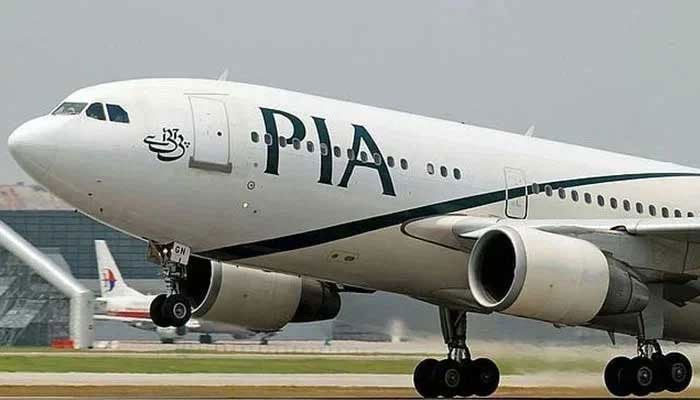Unprecedented?
The Pakistan Public Works Department (Pak PWD) originated in the pre-partition era. Over its 77-year history, Pak PWD has been plagued by corruption, inefficiency, delays, cost overruns, and poor-quality construction, leading to financial losses exceeding a trillion rupees for Pakistani taxpayers. Between 1947 and 2024, Pakistan has seen 23 prime ministers and they all played ball with Pak PWD. On June 3, the 24th prime minister of Pakistan ordered the immediate dissolution of Pak PWD. Isn't this swift action towards shutting down loss-making entities unprecedented?
There isn't a company like Pakistan International Airlines (PIA) – anywhere in the world. Between 2008 and 2024, Pakistan had nine prime ministers: Yousaf Raza Gilani, Raja Pervez Ashraf, Mir Hazar Khan Khoso, Nawaz Sharif, Shahid Khaqan Abbasi, Nasir-ul-Mulk, Imran Khan, Shehbaz Sharif, and Anwarul Haq Kakar. During this period, PIA’s accumulated losses increased from Rs73 billion to Rs830 billion. On average, each prime minister is responsible for incurring a loss of Rs84 billion during his tenure.
On March 4, Shehbaz Sharif assumed office as the prime minister. On April 2, Expressions of Interest (EOIs) for the divestment of PIA were invited. On April 30, the SECP approved the restructuring of PIA. On May 3, the Scheme of Arrangement for the transfer of non-core assets and liabilities of PIA was approved. By May 17, eight business groups had submitted their EOIs. On June 3, six of the eight EOIs were pre-qualified. Isn't this speed towards privatization of loss-making SOEs unprecedented?
On July 11, 1950, Pakistan became a member of the IMF. Between 1950 and 2024, we had 24 ‘arrangements’ with the IMF. Between 1950 and 2024, we had 23 prime ministers. On May 11, PM Shehbaz Sharif became the first PM to constitute a committee for developing a ‘Home-grown Economic Development Plan’. Isn’t this move towards developing our own economic strategy unprecedented?
Between 2011 and 2024, the cost of running the federal government has increased from Rs202 billion to Rs839 billion. During this period, Pakistan had nine prime ministers. On March 4, Shehbaz Sharif assumed office as the prime minister. By March 14, PM Shehbaz Sharif had formed a committee to curtail government expenses. Isn't this speed towards reducing government expenditures unprecedented?
Three points. First, there are no previous occurrences or records of similar prime ministerial decisions. Second, these prime ministerial decisions represent a significant departure from the usual way things are done in our country. Third, these prime ministerial decisions will have a substantial and far-reaching impact, affecting a large number of Pakistanis and the Pakistani system as a whole.
Yes, committees formed by our governments have a long, chequered history of non-delivery. Shehbaz Sharif's real test lies in the execution of his decisions. Implementation requires detailed planning, drafting of policy documents, and securing approvals from relevant authorities, such as legislative bodies or executive agencies.
Additionally, establishing mechanisms to track progress, identify challenges, and measure the plan's effectiveness is crucial. Ensuring transparency, accountability, and stakeholder engagement throughout the process will be essential for overcoming obstacles and achieving the desired outcomes. Ultimately, the success of these unprecedented initiatives will depend on two factors: sustained commitment and rigorous follow-through.
The writer is a columnist based in Islamabad. He tweets/posts @saleemfarrukh and can be reached at: farrukh15@hotmail.com
-
 King Charles, Princess Anne, Prince Edward Still Shield Andrew From Police
King Charles, Princess Anne, Prince Edward Still Shield Andrew From Police -
 US Set To Block Chinese Software From Smart And Connected Cars
US Set To Block Chinese Software From Smart And Connected Cars -
 Carmen Electra Says THIS Taught Her Romance
Carmen Electra Says THIS Taught Her Romance -
 Leonardo DiCaprio's Co-star Reflects On His Viral Moment At Golden Globes
Leonardo DiCaprio's Co-star Reflects On His Viral Moment At Golden Globes -
 SpaceX Pivots From Mars Plans To Prioritize 2027 Moon Landing
SpaceX Pivots From Mars Plans To Prioritize 2027 Moon Landing -
 King Charles Still Cares About Meghan Markle
King Charles Still Cares About Meghan Markle -
 J. Cole Brings Back Old-school CD Sales For 'The Fall-Off' Release
J. Cole Brings Back Old-school CD Sales For 'The Fall-Off' Release -
 GTA 6 Built By Hand, Street By Street, Rockstar Confirms Ahead Of Launch
GTA 6 Built By Hand, Street By Street, Rockstar Confirms Ahead Of Launch -
 Funeral Home Owner Sentenced To 40 Years For Selling Corpses, Faking Ashes
Funeral Home Owner Sentenced To 40 Years For Selling Corpses, Faking Ashes -
 Why Is Thor Portrayed Differently In Marvel Movies?
Why Is Thor Portrayed Differently In Marvel Movies? -
 Dutch Seismologist Hints At 'surprise’ Quake In Coming Days
Dutch Seismologist Hints At 'surprise’ Quake In Coming Days -
 Australia’s Liberal-National Coalition Reunites After Brief Split Over Hate Laws
Australia’s Liberal-National Coalition Reunites After Brief Split Over Hate Laws -
 DC Director Gives Hopeful Message As Questions Raised Over 'Blue Beetle's Future
DC Director Gives Hopeful Message As Questions Raised Over 'Blue Beetle's Future -
 King Charles New Plans For Andrew In Norfolk Exposed
King Charles New Plans For Andrew In Norfolk Exposed -
 What You Need To Know About Ischemic Stroke
What You Need To Know About Ischemic Stroke -
 Shocking Reason Behind Type 2 Diabetes Revealed By Scientists
Shocking Reason Behind Type 2 Diabetes Revealed By Scientists




